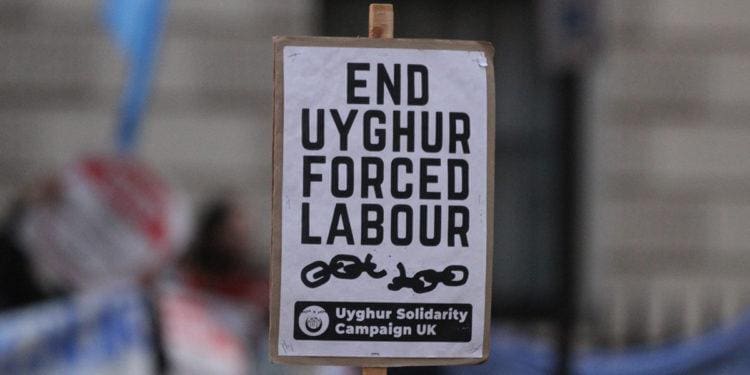There’s no shortage of measures designed to safeguard human rights across the globe, but Washington, London and Brussels have yet to fully see eye-to-eye on what entities to target. Vincent Gaudel from LexisNexis Risk Solutions sets the stage for what to expect in the evolution of thematic human rights sanctions.
Combating human rights violations and corruption is a common goal among world powers, and with good reason. No nation wants to become known as a habitual human rights violator.
Localized human rights violations have long been a driver for the implementation of country-specific sanctions. However, with the Global Magnitsky Human Rights Accountability Act of 2016, the U.S. became the first major country to implement a worldwide, thematic sanctions program aimed at protecting human rights and fighting corruption.
The advantage of thematic sanctions is that they offer great latitude to apply penalties regarding a specific issue wherever it occurs, without requiring a new legal instrument for each issue. Nations and global regulatory bodies introduced thematic sanctions as a response to terrorism, which is a threat that, despite hotspots, exists beyond national borders.
Where Does Your Cotton Come From? Dismantling Global Forced Labor Requires Pinpoint Supply Chain Transparency
At any given time on earth, an estimated 25 million people are forced to work against their will. The human rights atrocities alleged in China’s Xinjiang Uyghur Autonomous Region have rightly generated outrage and political action.
Read moreUnlike traditional sanctions programs focusing on a particular country or region, the Global Magnitsky Act uses thematic sanctions to target serious human rights abuses and corruption. The name comes from Russian tax lawyer Sergei Magnitsky, whom Russian officials detained and beat after he exposed corruption in Russia. He subsequently died.
Magnitsky-like sanctions do not replace traditional geographic sanctions but complement those programs by providing governments with policy tools that have a global reach, enabling them to respond quickly to global issues like human rights abuses or grand corruption.
The UK, EU, Canada, Estonia, Lithuania and others have borrowed from the U.S. playbook and implemented their own Magnitsky-like sanctions, some even adopting the name Magnitsky. More countries continue to follow suit. In December 2021, Australia amended its Autonomous Sanctions Act to include Magnitsky-like sanctions regulations that give the government the ability “to respond flexibly and swiftly to a range of situations of international concern.”
Exploring sanctions alignment and divergence
In spite of the absence of global human rights sanctions at the UN level, recent policy developments around the world suggest a shared objective among a number of like-minded countries to tackle human rights abuse and corruption. There is also a clear trend toward greater use of thematic sanctions to meet that goal. As such, we may expect to see a certain degree of alignment in listed targets. In reality, however, the opposite is true — there is a notable level of divergence.
Our data gathered at the end of 2022 supports this point. Of the 749 records listed under human rights and corruption sanctions programs of the U.S., EU and UK, only about 3% of entries (24) see a listing by two of the three regulators. Less than 1% of entries (five) have a listing from all three regulators. These numbers may appear surprising but illustrate a stark misalignment of targets for sanctions programs that seemingly pursue the same aims.
Looking at the actual targets of the EU, UK and U.S., the first interesting indicator is the total number of entries on each list. At 606 total entries (entities, individuals and vessels) representing more than 60 nationalities, the U.S. has more than four times as many entries on its OFAC Global Magnitsky Sanctions Program (GLOMAG) list than the UK and EU combined. Both scope and timing influence this sizable difference.
Let’s first look at scope.
The GLOMAG program in the U.S. and the UK programs encompass both human rights violations and corruption. The EU, on the other hand, covers only human rights abuses. The current EU Global Human Rights Sanctions Regime (GHRSR) does not consider corruption in connection with human rights violations as an offense punishable by restrictive measures. Ursula von der Leyen, president of the European Commission, wants to include corruption in its human rights sanctions regime, but EU member states still need to vote and adopt the regulation once the Commission tables the proposal. The narrower scope of the EU list helps account for fewer targets compared with the U.S. and UK.
Timing is another element that contributes to the sizable difference in the number of entries on each list. The U.S. started its designations in 2017 — the earliest of the three regulators — so it stands to reason that it would have a greater number of entries. The UK introduced its Global Human Rights Sanctions Regulations in July 2020 followed by the Global Anti-Corruption Sanctions Regulations nine months later in April 2021. By contrast, the EU introduced GHRSR in December 2020, with the first designation made in May 2021. It does not include corruption.
Regardless of differences in scope and timing, the lack of overlap in entries among the three regulators is still surprising. Although countries share the common goal of preventing human rights abuses and corruption, there is clearly a wide variation on who or what entity to sanction.
Global issues, local sanctions exposure
With thematic sanctions becoming more widespread, entities worldwide risk being exposed to a target of such global sanctions programs. Global bodies target individuals and entities located anywhere in the world. They may very well be right in your backyard.
In 2021, OFAC’s single largest set of designations did not relate to comprehensively sanctioned countries such as Iran, North Korea or Syria but to a Bulgarian corruption network. The SDN List saw 67 people and entities added that year.
Bulgaria is not alone. The U.S. imposed sanctions through GLOMAG on 92 targets across seven EU countries, including Germany, Belgium and the Netherlands (15% of GLOMAG targets). Further, 325 targets are in nine of the G20 countries and account for 43% of the EU, U.S. and UK targets. Countries with reportedly a high level of corruption or with a poor record in human rights protection are unsurprisingly well-represented. Sometimes country-specific sanctions programs are used for poor performers like Myanmar, Venezuela and Iran.
The broad range of nationalities represented on these major sanctions lists underscores the importance of acknowledging the global reach of thematic sanctions to tackle perpetrators of human rights violations and corruption, regardless of the country of origin.
Looking ahead
Thematic sanctions are clearly here to stay. They are an important tool that combats global issues. Unlike country or region-based sanctions, the addition of global, thematic sanctions programs like human rights and corruption means no jurisdiction is immune to potential exposure.
So, what does the future hold? If the GLOMAG program for U.S. designations is any guide, the future of human rights sanctions points to an upward trend in using these programs, with entries and lists growing longer as programs mature. Recent indications from the U.S. government point to greater commitment to incorporating multilateral cooperation where possible. This would likely result in greater alignment on the lists of entities sanctioned under global human rights and corruption programs, through initiatives such as the recently announced OFAC-OFSI Enhanced Partnership.
If the international community is truly serious about combating human rights abuses and corruption, then working toward greater alignment of sanctions among the U.S., UK, EU and other like-minded countries is a key step toward a more effective response to those global issues. Since 2019, the U.S. seems to be using GLOMAG designations as a clear indication of its commitment, with landmark designations issued each Dec. 10, International Human Rights Day.
OFAC marked this past Dec. 10 with a designation of a network of companies involved in illegal fishing through a fleet of more than 150 vessels. They added all of the companies to the SDN list for a variety of abuses, notably the widespread use of forced labor. This action includes the designation of a NASDAQ-listed company, a first for OFAC.
Financial institutions and international businesses are at the forefront in implementing sanctions by ensuring effective sanctions compliance. However, they can go one step further by screening for enforcement information and negative news to proactively flag violations while implementing a risk-based approach to identify entities that may be involved in human rights or corruption. Beyond the regulatory risks of dealing with sanctioned entities, organizations should also be mindful of the potential reputational and business implications of being associated with human rights abusers or corrupt entities.




 Vincent Gaudel is a financial crime compliance expert and certified global sanctions specialist at LexisNexis Risk Solutions. In his role, he monitors international sanctions and financial crime regulatory developments, helping clients navigate complex regulatory requirements.
Vincent Gaudel is a financial crime compliance expert and certified global sanctions specialist at LexisNexis Risk Solutions. In his role, he monitors international sanctions and financial crime regulatory developments, helping clients navigate complex regulatory requirements.








